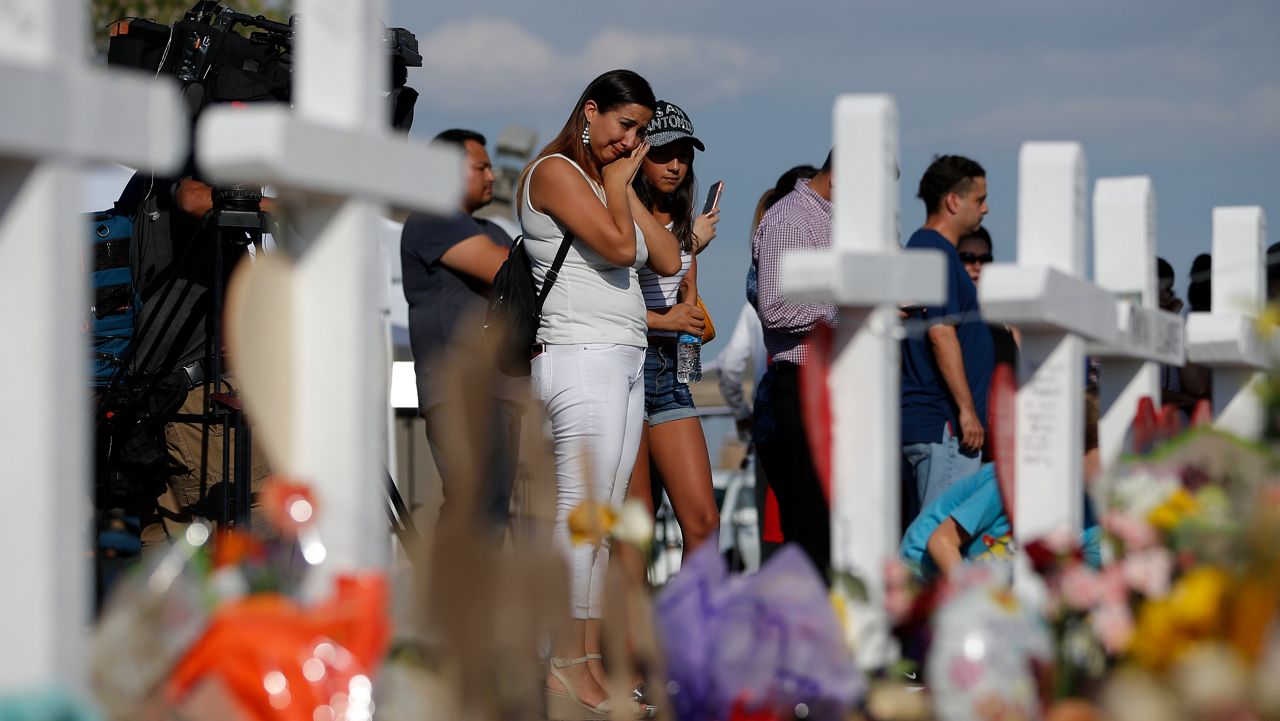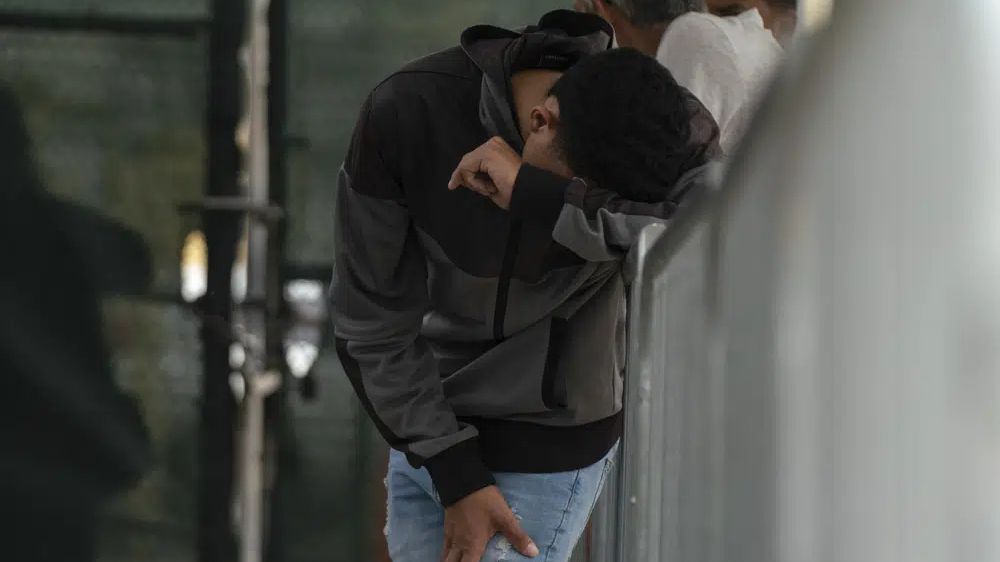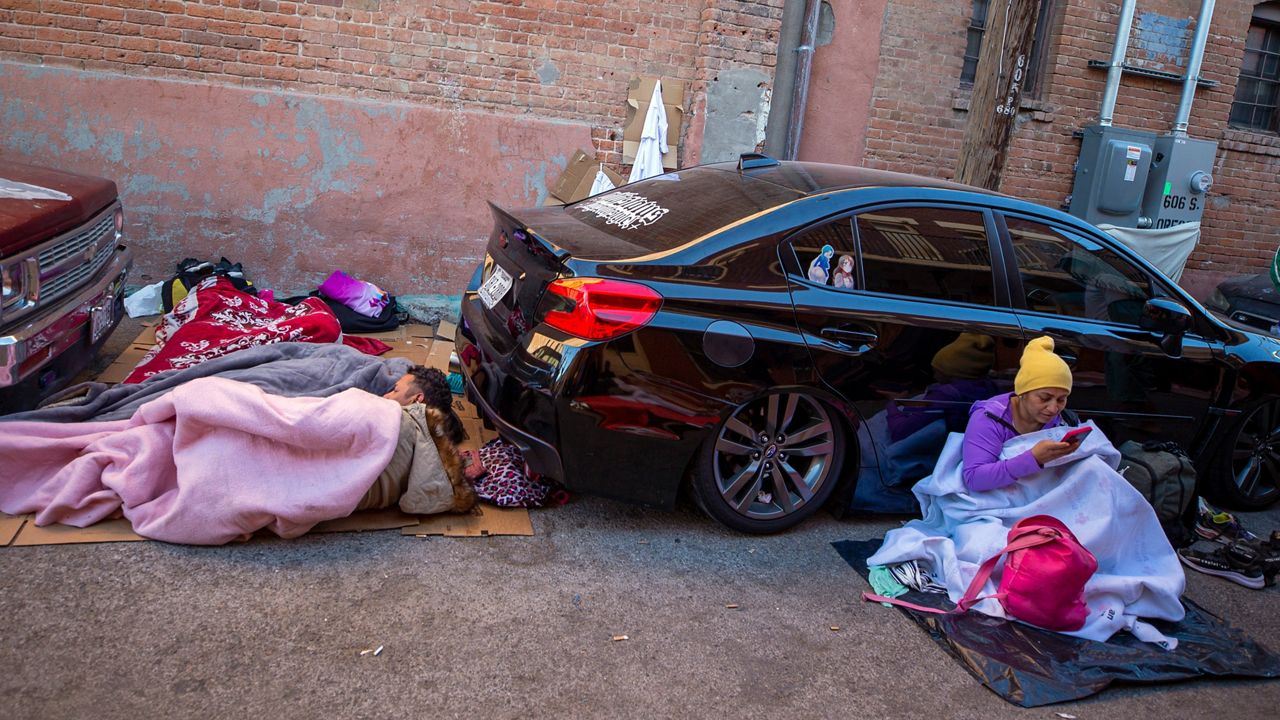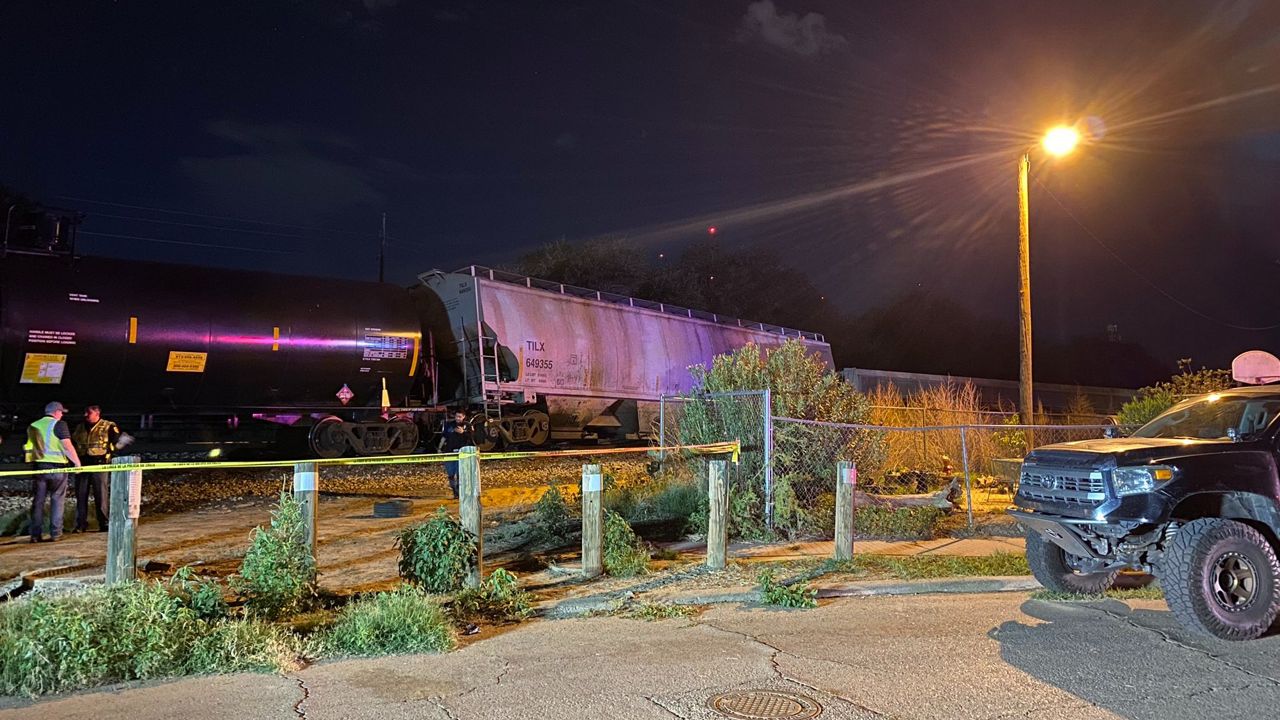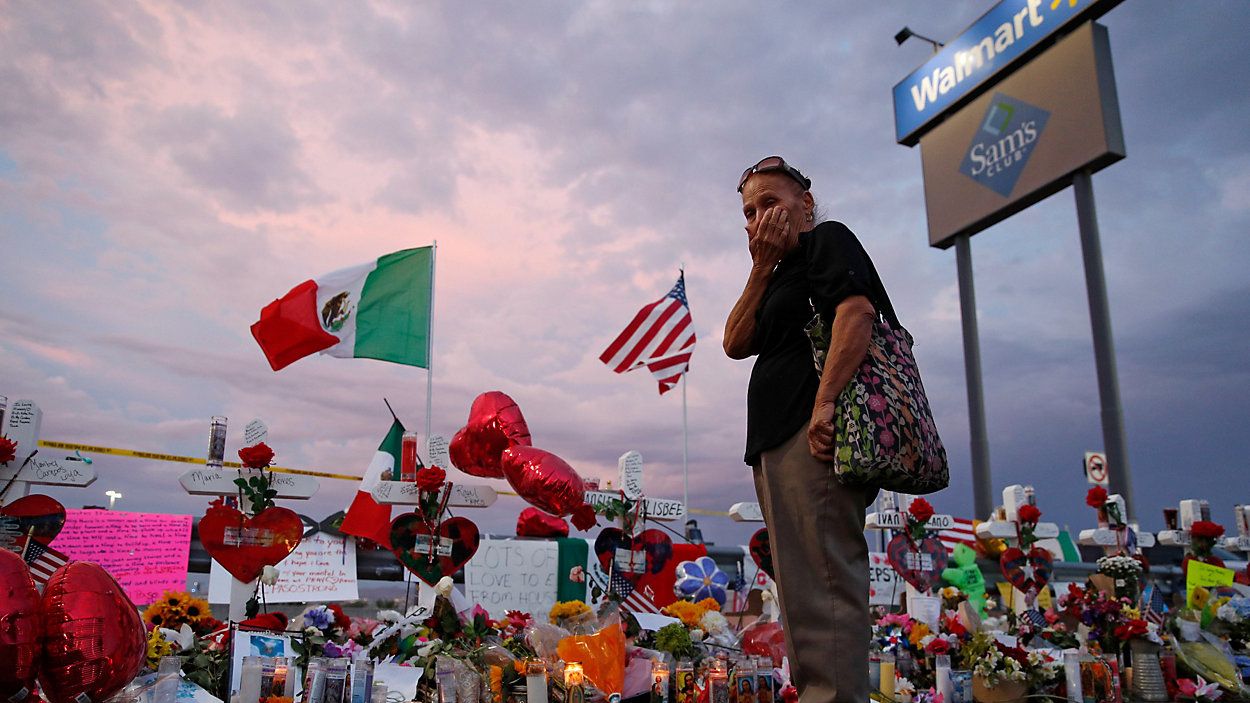EL PASO, Texas — The gunman who killed 23 people in a racist attack targeting Hispanic shoppers at a Walmart near the U.S.-Mexico border in 2019 would avoid the death penalty under a plea offer announced Tuesday, abruptly ending years of efforts by prosecutors to see that he face execution by lethal injection.
El Paso County District Attorney James Montoya said during a news conference that his decision in the prosecution of Patrick Crusius, who drove across the state for one of the deadliest mass shootings in U.S. history and posted a racist screed just before opening fire, was driven by a majority of victims' relatives who wanted the case behind them.
Montoya’s public comments came after El Paso Matters reported on Monday that family members of the victims were informed that Crusius would no longer face the death penalty.
Some family members then told reporters with the nonprofit news website, despite a gag order preventing lawyers and potential witnesses from discussing the case with news outlets. Montoya said the gag order in the case is now lifted.
“This is about allowing the families of the 23 victims who lost their lives on that horrific day — and the 22 wounded — to finally have resolution in our court system,” Montoya said in a statement.
“Now, no one in this community will ever have to hear the perpetrator’s name ever again,” he added. “No more hearings. No more appeals. He will die in prison.”
Montoya said during a news conference on Tuesday that an "overwhelming majority" of family members of the victims wanted the death penalty to be dropped. But he also acknowledged at the news conference that not all families agreed with the reversal by his office, which under previous leadership had committed to taking the case to trial and seeking the death penalty.
Adria Gonzalez, a survivor who helped panicked shoppers toward exits, said she feels that not pursuing the death penalty is “a slap in the face for all the victims.”
Crusius, 26, was already sentenced to 90 consecutive life sentences at the federal level after pleading guilty in 2023 to hate crime charges. Under President Joe Biden's administration, federal prosecutors also took the death penalty off the table but did not explain why.
Mark Stevens, an attorney for Crusius, did not immediately respond to a message seeking comment.
Crusius faces separate state charges in the mass shooting, where he could have faced the death penalty.
Montoya said he supports the death penalty and believes Crusius deserves it. But he said he met with the families of the victims and while some were willing to wait as long as it took for a death sentence, there was an overriding desire to conclude the process.
“I’m just glad it’s over,” said Elise Hoffmann-Taus, whose father, Alexander Hoffmann was among those killed. “This is the outcome I wanted.”
Montoya also said pursuing the death penalty would mean a long and drawn-out legal battle with many hearings and appeals.
“I could see a worst-case scenario where this would not go to trial until 2028 if we continued to seek the death penalty,” he said.
Montoya, a Democrat, took office in January after defeating a Republican incumbent who was appointed by Gov. Greg Abbott. Montoya is the fourth district attorney to oversee the case, and his predecessors supported sending Crusius to death row.
His predecessor, Bill Hicks, said following the announcement that while he had been ready to take the case to trial and pursue the death penalty, he could not fault Montoya’s reasoning behind the plea offer.
“It is not the reasoning I would have followed,” Hicks said. “I know that it was very hard for him, and I respect that it was a very difficult decision.”
Crusius, who is white, was 21 years old and had dropped out of community college when police say he drove more than 700 miles from his home near Dallas to El Paso.
Moments after posting online his racist rant, which warned of a Hispanic “invasion” of the state, he opened fire with an AK-style rifle inside and outside the store.
Crusius was arrested shortly after the shooting and confessed to officers who stopped him at an intersection, police have said.
The attack remains one of the deadliest mass shootings in American history.
Prior to the attack, Crusius appears to have been consumed by the immigration debate, posting online in support of building the border wall and other messages praising the hard-line border policies of President Donald Trump, who was in his first term at the time. He went further in the screed right before the shootings, saying Hispanics were going to take over the government and economy.
In the federal case, prosecutors did not formally explain their decision not to seek the death penalty, but they did acknowledge that Crusius suffered from schizoaffective disorder, which can be marked by hallucinations, delusions and mood swings.
Abbott, a Republican, said Tuesday after the announcement that he thought Crusius deserved to die: “Any shooting like that is what capital punishment is for.”
The people who were killed ranged in age from a 15-year-old high school athlete to several grandparents. They included immigrants, a retired city bus driver, teachers, tradesmen, including a former iron worker, and several Mexican nationals who had crossed the U.S. border on routine shopping trips.
In 2023, Crusius agreed to pay more than $5 million to his victims. Court records showed that his attorneys and the Justice Department reached an agreement over the restitution amount, which was then approved by a U.S. district judge. There was no indication that he had significant assets.
Dean Reckard, whose mother, Margie Reckard, was also killed in the shooting, said Crusius deserves death but it’s time to put the matter to rest.
“Our loved ones will always be loved and remembered as decent people who were just living their lives and doing their best,” he said. “We need to do the same. It’s what they would have wanted.”
Montoya, who took office on Jan. 1, said he has met with every family of the 23 victims to hear “about how they feel about the case, the pending trial, and the ongoing pursuit of capital punishment,” according to a news release from his office.
“While the entire El Paso community was deeply affected by the terrible events of that day nearly six years ago, the District Attorney wanted to meet with the families who suffered the deepest losses before addressing the public,” the release said.




